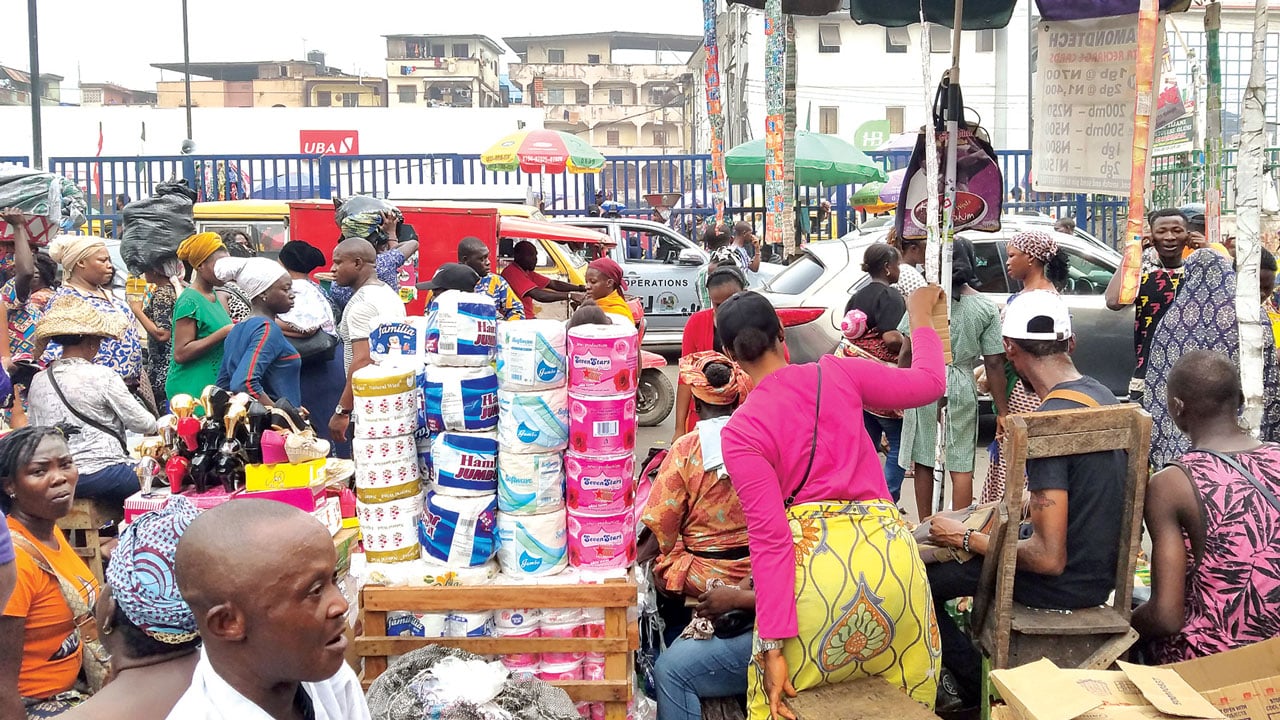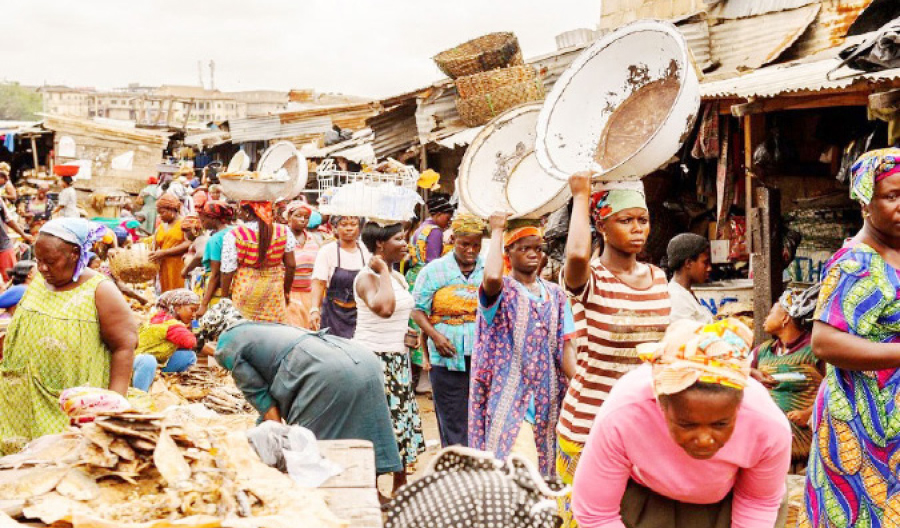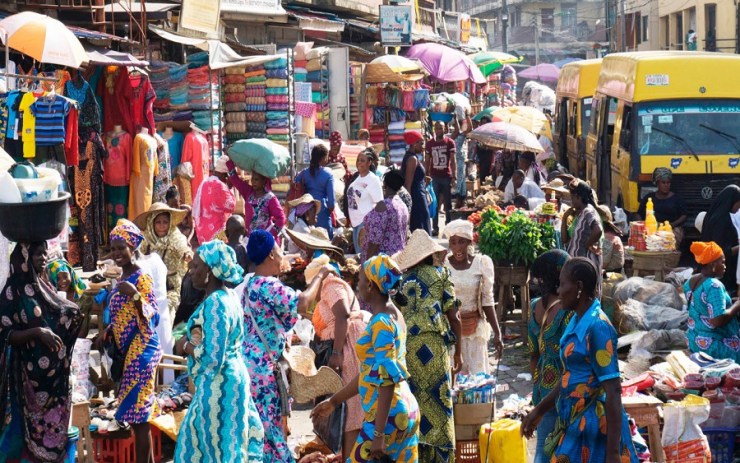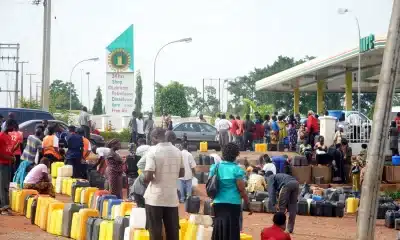Nigeria News
Economic Hardship: Many Nigerians May Go Into Depression Or Be Suicidal If…

Many Nigerians have never been this hopeless as they are now with the Bola Tinubu administration.
Following the removal of the fuel subsidy on May 29, 2023, the unification of the exchange rate and the poor economy inherited from the Muhammadu Buhari government, President Tinubu has a lot of work to do to rebuild the economy and gain the trust and confidence of the citizens before it is too late.
The economic hardship, the high cost of living and the rising prices of goods and food items in Nigeria have reached alarming levels. Foreign exchange is becoming alarming by the day, with the high rate of crime getting scary.
The prices of food and commodities have skyrocketed in the markets, and Inflation rates have surged, eroding the purchasing power of an average Nigerian.
Drugs have become out of reach for the poor and the costs of goods and services have multiplied incredibly. Even fees for both private and public schools have been outrageously increased.
Despite low usage, electricity bills have gone up. The reality on the ground is very terrible, and the government should act assiduously.
Factories and shops are closing, even as people are losing jobs. It is separating homes and increasing crimes.
The situation in recent times has pushed many people to take extreme measures, even severe depression and taking their own lives. The rising cost of living is driving Nigerians to take extreme measures to survive or give up and the unemployment rate is alarming.

According to a recent report released by the National Bureau of Statistics (NBS), Nigeria’s unemployment rate surged to 5.0 per cent in the Third Quarter (Q3) of 2023 from 4.2 per cent in the previous quarter.
The report stated that the unemployment rate in Africa’s biggest economy, with more than 200 million people, fell from 5.3 per cent in Q4 2022 to 4.1 per cent in Q1 2023. It also added that the unemployment rate increased significantly in Q3 2023 at 5.0 per cent. This is an increase of 0.8 per cent from Q2 2023.
However, the Tinubu government has taken some measures to alleviate the suffering of Nigerians and immediately address the economic hardship.
Some of the measures include the distribution of food palliatives to cash transfers to the citizens. Also, the President ordered the release of 10,000 metric tons of grains from the national food reserves.
As good and pleasant as the measures may sound, their effectiveness is yet to be seen and felt by the citizens, and no data has been provided to show the beneficiaries of palliative. It may not bring any comfort or relief to the people because of insufficiency.

In an exclusive interview with Naija News, a political economist, Akinkunmi Ogunbanjo, said the present bad economy condition of the country needs immediate attention.
Ogunbanjo stated that the country’s problem is not the supply, but purchasing power, adding that the better part of the nation’s foreign exchange earnings come from the sale of oil.
He said: “For a one-dimensional economy like Nigeria, the implications are far-reaching. One, almost 90% of our foreign exchange earnings come from the sale of oil. Two, our annual Federal budget is created based on projections made on oil prices and the quantity of oil sold. There were early signs and warnings, but our insensitivity contributed a lot. Based on some of these anomalies, Nigeria was said to be technically in recession, sick or heading to recession.
“And what, then, is a recession? It is a situation where the country’s state of the economy declines; there is a widespread decline in GDP and per capita income, the decline in employment and trade lasting from 6 months to a year. The resultant effect of all these is that the inflationary trend soars, investors pull out their funds from the market because our Nigeria economy depends majorly on crude oil eaning, there will be economic hardship, people will suffer to pay their bills or meet up with their daily obligations, sack of workers among economic agents, high unemployment rate, hike in the prices of basic amenities like food items, housing and shelters.
“Prices of food items have also continued to increase in increasing order, leaving the cost of living too high for an average Nigerian. Most States of the Federation today have been declared insolvent or bankrupt because they can’t even meet their obligations to the masses, such as welfare and security. Some can’t even pay their workers salaries nor provide basic infrastructural facilities and or social amenities in recent times. Others have adopted the half-salary paradigm for their workers, while many have resulted in indiscriminate taxation to meet up with the challenges.
“At the Federal level, the case is no different. The hardship has led to a various cut in the spending of the Federal government. Over the years, there has been a deficit balance of payment and balance of trade. Our national reserve has continued to fall over the period. With all these anomalies, today, the state of the economy has declined to a level where everybody is hugely affected. There are serious problems, hardships and sufferings in the country as a result of the economic kwashiorkor.”
Causes Of Nigeria’s Economic Problems
According to Ogunbanjo, one of the major causes of Nigeria’s economic problems was over-dependence on crude oil as a major source of revenue for the government.
The political economist said with the present fall in the prices of crude oil, it becomes very difficult for the government to finance the nation’s budget comfortably and to live up to the expectations of the masses.
He said: “Another cause of the economic problems in the country is the level of corruption and greed among some people. In the banking sector, insider abuses, non-adherence to the corporate governance code, too many non-performing loans, fictitious assets in the balance sheet, extensive disclosure of business risk areas, creative accounting and other related corrupt practices have been the bane to national development. Other causes of the economic problems in Nigeria are the lack of Tinubu’s economic policy direction, untimely implementation of the nation’s budget and corruption.
“Every government usually look up for direction. It is like a compass that guides every administration. The absence of robust economic policy would halt economic activities, scare investors, and affect the Gross Domestic Product (GDP), the Gross National Product (GNP), Per Capita Income, Inflationary trend, Interest Rate, Exchange Rate, Balance of Trade and Balance of Payment.”
Way Out Of The Problems
Speaking further, Ogunbanjo said the Tinubu need to act fast in addressing the present hardship so as to prevent vulnerable Nigerians from getting into depression or considering suicide.
According to Ogunbanjo, the Tinubu government should diversify the economy and make agricultural practice the mainstay of the economy as it used to be.
He stated that the government should invest in the production of agricultural products such as rice, palm oil, groundnut, cocoa etc.
Ogunbanjo said the government should come up with a formidable economic policy that would arrest the continuous decline in the economy to forestall the present hardship being experienced in the country.
He revealed that this could be done using the two tools of fiscal policy and monetary policy.
He said: “The Nigerian government faces a formidable task in addressing the cost of living crisis. Striking a balance between the removal of fuel subsidies and exchange rate unification is essential. Policies must be carefully calibrated to minimise the adverse impacts on vulnerable populations. Simultaneously, the government should explore measures to enhance social safety nets, promote agricultural productivity, and stimulate economic growth.
“To alleviate the immediate burden of fuel price hikes, the government can consider targeted subsidy programs that provide financial relief to vulnerable citizens. These programs can take the form of cash transfers or subsidies on essential goods to shield the most economically disadvantaged segments of society.
“While exchange rate unification is a necessary long-term reform, the government can implement measures to stabilise the Naira’s value in the short term. This may involve interventions in the foreign exchange market to manage volatility and prevent rapid devaluation.
“To address the root causes of rising prices, the government can promote domestic production of essential goods. This reduces reliance on imports and mitigates the impact of currency devaluation on the cost of living. Strengthening social safety nets can provide a buffer for citizens facing economic hardships. This includes expanding access to healthcare, education, and other essential services to reduce the overall cost of living.”












